I’m delighted to attend this DevOpsDays in Berlin. Thank you Dbi Services #greatplacetowork for this opportunity. This is my first DevOpsDays event and I’m all ear and motivated to get the most of it with my colleague Chay Te.
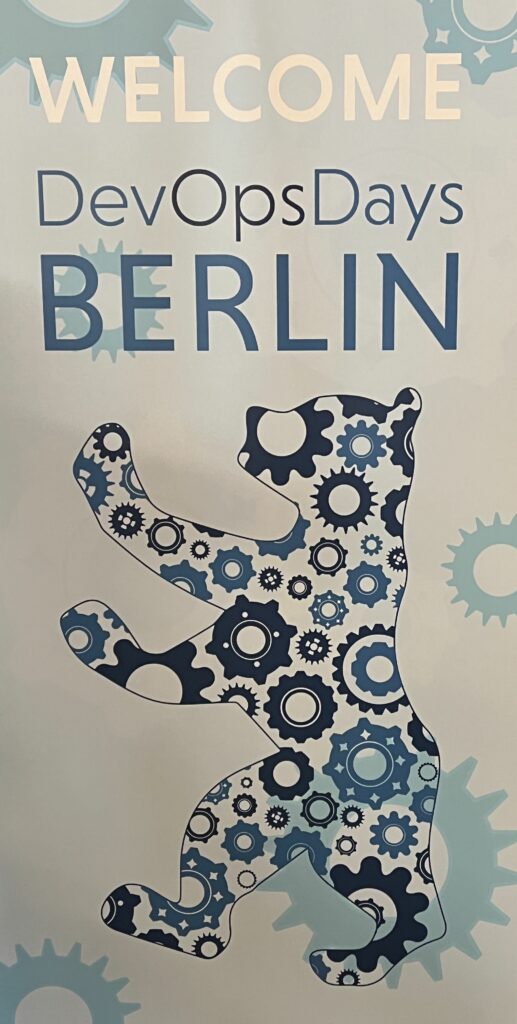
The program of this 2 days event can be seen here: https://devopsdays.org/events/2022-berlin/program and this post is about my feedback after finishing Day 1.
Presentations
The morning started with four half an hour presentations on various topics around DevOps that helped me expand my overall DevOps knowledge. Below is the gist (do not mistake it with the git command! ;-)) of them.
We began with the presentation from Christian Hüser about the challenges to migrate a classic IT environment to DevOps. As it is often the case, the main challenge was not technical but cultural where it was required to break down knowledge silos. It reminded me of this classic joke: “If you can’t change the people then change the people!”
After that, the excellent presentation from Schlomo Schapiro made me realized that with GitOps Controller, we can have an architecture where people collaborate and operate in one area whereas in the infrastructure environment, machine operate with no intervention of people.
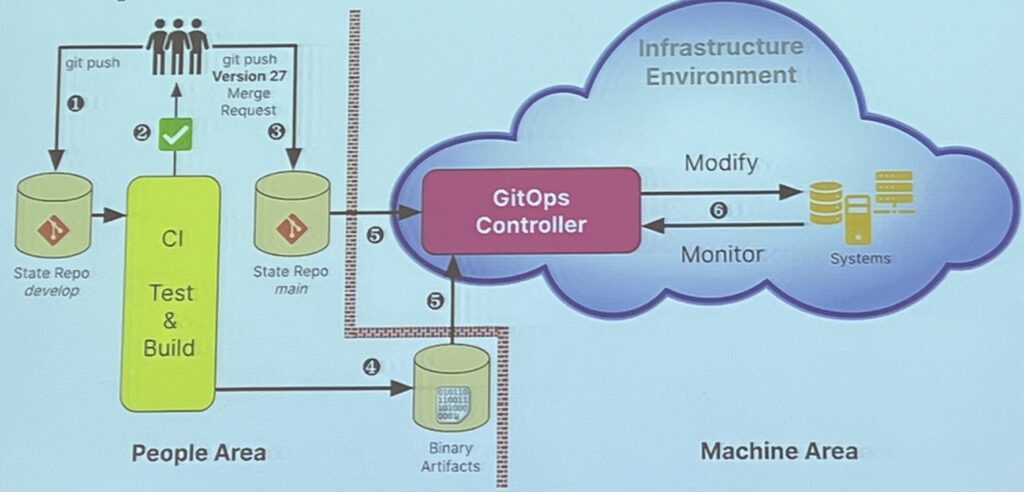
Then from the presentation of Areti Panou I took home that when collaborating on a project in a multi-language team, it is easy to misinterpret a concept or use a word that has a different meaning in another language so extra care is required for a clear communication and checking everyone is on the same page.
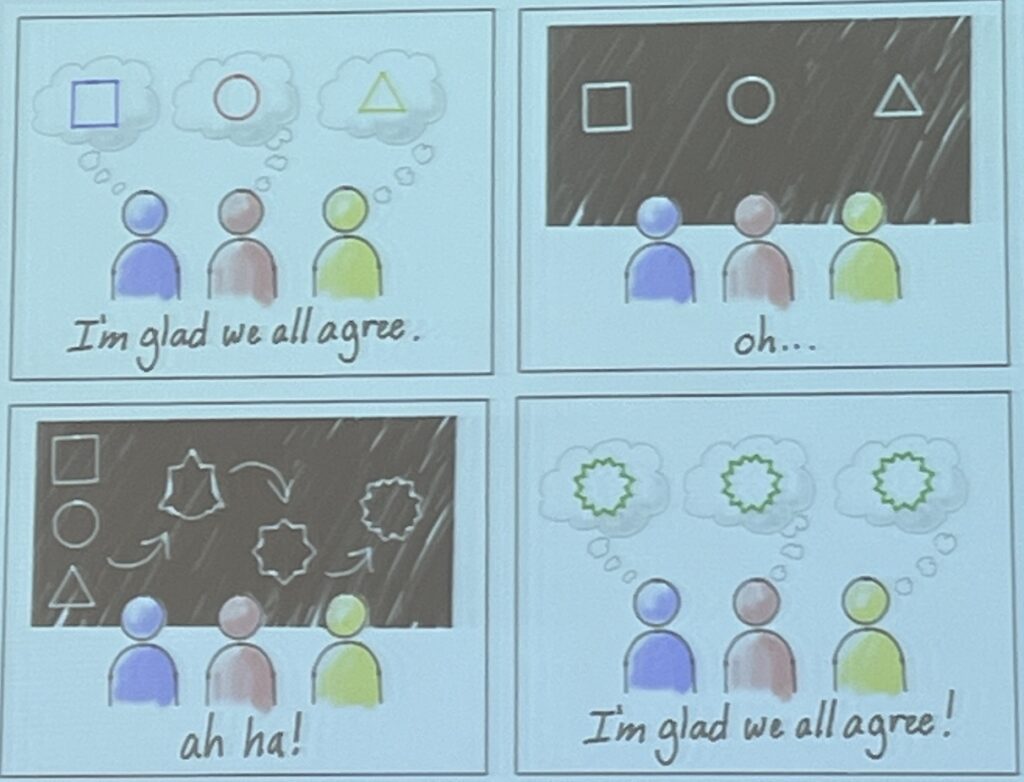
Finally, the colorful presentation from Ewelina Wilkosz gave us an inside look of the direct application of the DevOps culture in her software development company.

I just love this multi-colored DevOps logo. My understanding is that each color is a person with its own character and skills but everybody is working together toward a goal by sharing the same values (here a DevOps culture). This is identical to how dbi-services also operates without calling it DevOps culture! By the way dbi-services has just released a new tool called YaK by using DevOps principles that could also help DevOps teams. Check it out here: https://www.dbi-services.com/products/yak/
Ignites
The afternoon starts with Ignites. Ignites are very punchy presentations of 5mn on a specific topic. I love this format because in a short time you can learn a lot on a subject then you move to another one. It is pretty much how we consume information today and that works just fine for me.
Schlomo Schapiro talked about what comes after DevOps and compared it with the process of earning the driving license. Below you’ll find a nice summary:
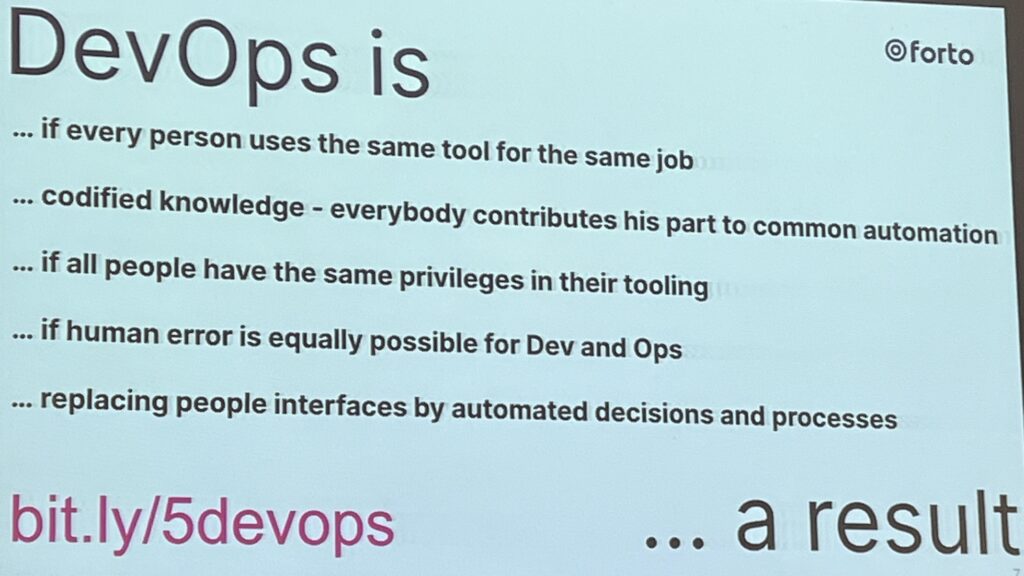
Kris Buytaert shared an insightful view about Observability. If the choice of the monitoring tool is based on poor decisions as starting from scratch where a monitoring tool already exists or by using the latest shiny tool but with a wrong focus then it will lead to regression. We will not have the required metrics and/or not learn from our metrics as the tool will not be used properly. He observed the following behaviour so repeatedly that he could create an algorithm for it! I would call it “Observability failure as a code”!
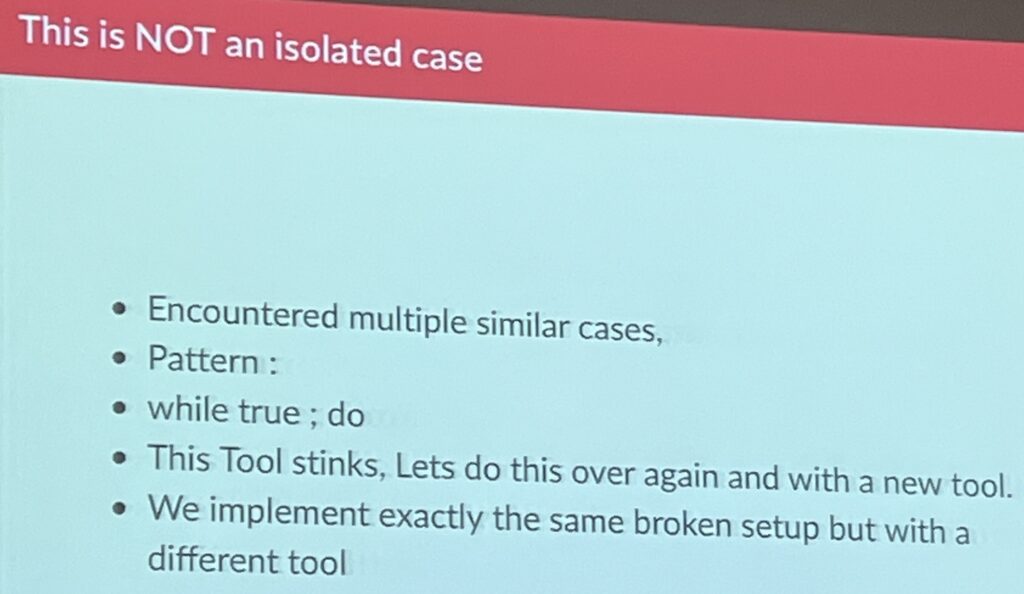
Finally Philipp Krenn shared with us the long shadows of Log4Shell. If you work in IT, you for sure remember of the last December bombshell: Log4Shell in Java! The common vulnerability with the highest possible score of 10/10. There has been a lot of noise around it after it’s discovery with a lot of companies publishing their fix to reinsure their customers. The reality however is that this vulnerability is still being exploited in the wild today and we understand why by looking at the slide below. What was supposed to be a great announcement has become now a scary news.
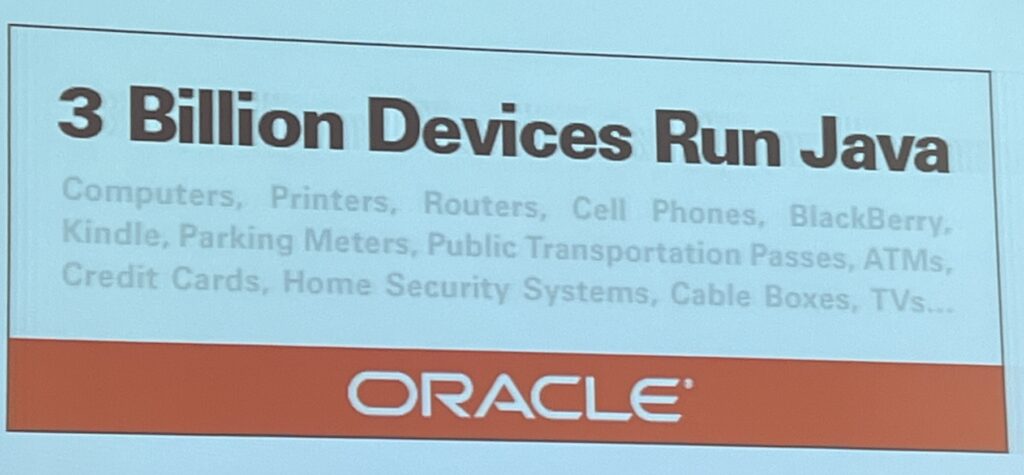
Open Space
This concept is to bring topics of interest around DevOps from the audience and after voting, keep the most popular ones. Then we split all topics in 4 rooms. Each room will have 3 consecutive topics of 45mn. You can then follow the discussion on a topic in one room and at the end switch to another room. It is possible to switch rooms at any time but it is better to select the ones you are the most interested in and stick to it in order to get the most of it.
Thus, I attended topics around using DevOps into IT Infrastructure and GitOps Tooling and processes. I’ve learned from other DevOps professional how they introduced and used DevOps in their company, the challenges they faced and the solutions and tools they used to overcome them. I also realized that DevOps being so flexible, each company implements it the way it suits them the most. There are kind of fifty shades of DevOps implementations.
Those open discussions in DevOpsDays are a great place for learning from others as well as have new ideas for improvement. That’s the DevOps concept at international scale between companies!
Wrapping up
It has been a busy day and I liked the format switching between presentations, ignites, open space and networking along the day. Let’s see what’s around the corner for the second day.
![Thumbnail [90x90]](https://www.dbi-services.com/blog/wp-content/uploads/2025/05/martin_bracher_2048x1536.jpg)
![Thumbnail [90x90]](https://www.dbi-services.com/blog/wp-content/uploads/2024/03/AHI_web.jpg)
![Thumbnail [90x90]](https://www.dbi-services.com/blog/wp-content/uploads/2022/08/HER_web-min-scaled.jpg)